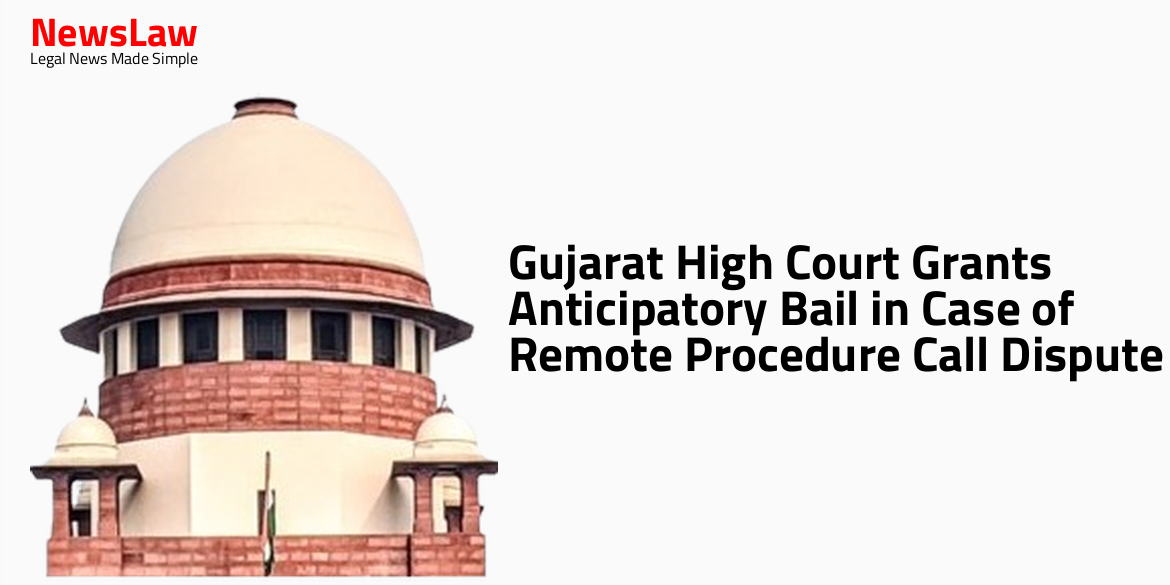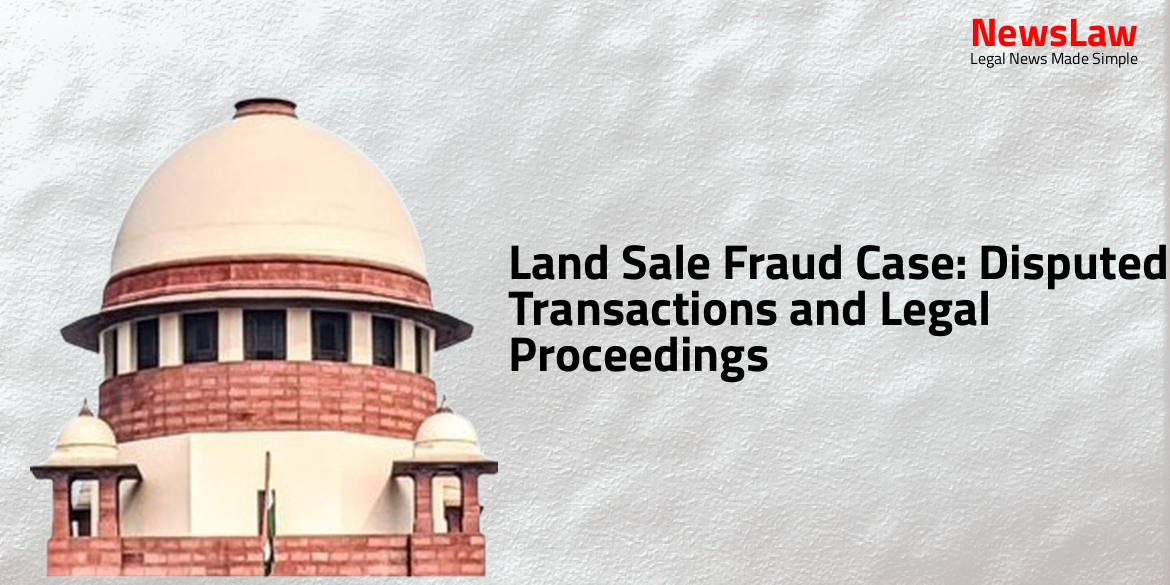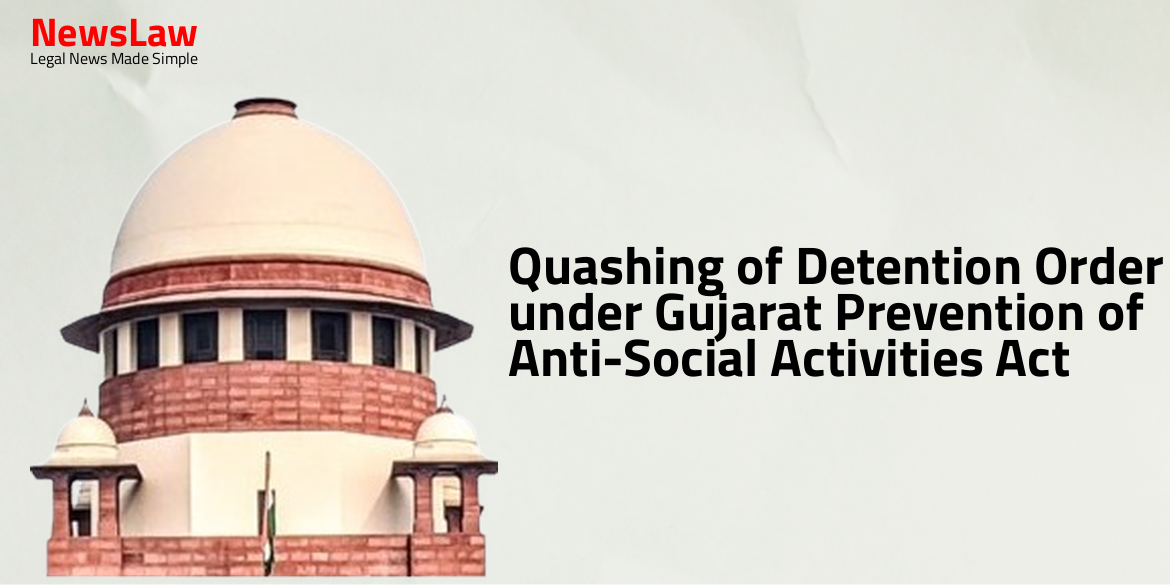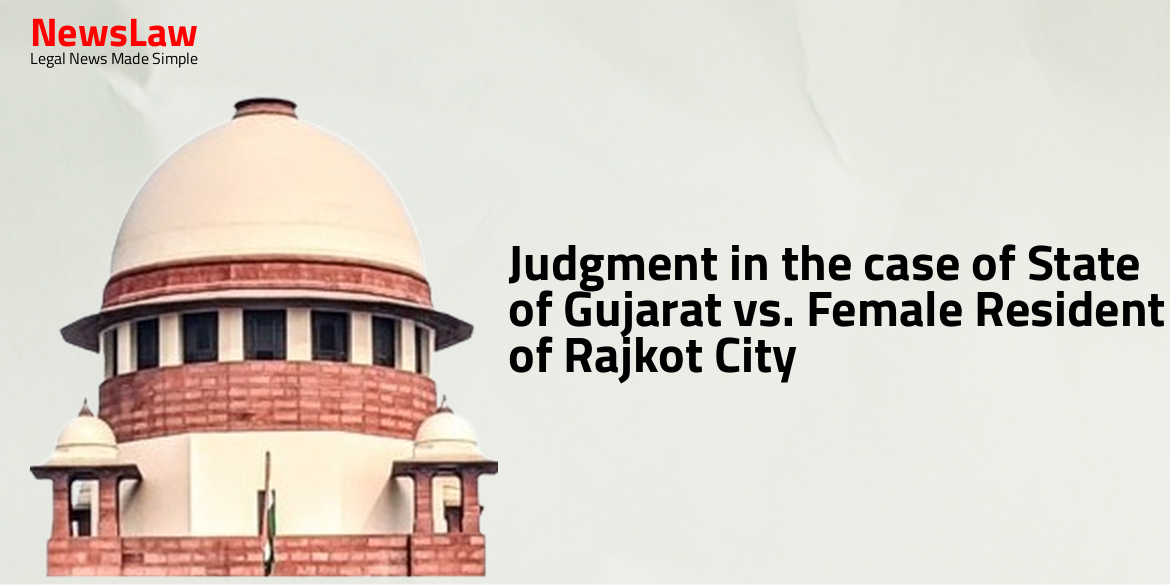In a significant ruling by the Gujarat High Court, anticipatory bail has been granted in a case involving a remote procedure call dispute. The case, originating from FIR No.11193008240201 of 2024 at Babra Police Station, District: Amreli, saw the accused nos. 1 and 2, seeking relief. The judgment sheds light on the legal aspects surrounding the Remote Procedure Call (RPC) framework and its application in resolving disputes. Stay updated on this noteworthy legal development.
Facts
- Applicant has applied for anticipatory bail under Section 438 of the Code of Criminal Procedure, 1973.
- The applicant, original accused nos. 1 and 2, seeks release on anticipatory bail in case of arrest in connection with FIR No.11193008240201 of 2024 at Babra Police Station, District: Amreli.
- The offences in question are punishable under Section 409 and 34 of the Indian Penal Code.
Arguments
- There has been an unexplained delay of seven years in lodging the complaint by the original complainant.
- The dispute in question is of a civil nature.
- The learned advocate representing the applicants argues that no offence has been established as per the complaint, and the sections applied do not meet the necessary ingredients for the allegations against the applicants.
- Learned advocate Mr. Kishan Dave vehemently opposed the anticipatory bail application for Mr. Dhruvin Bhuptani
- Mr. Dhruvin Bhuptani, as a Sarpanch, is accused of retaining goods that were never purchased by him
- The misuse of power and authority by Mr. Dhruvin Bhuptani, supported by his husband, is pointed out
- The State’s Advocate appearing for the respondent argued against granting bail due to the gravity of the offense
- The applicant’s lawyer argued for the bail by suggesting suitable conditions be imposed
Analysis
- Dispute exists regarding the purchase of the goods in question by the applicants
- Earlier, a First Information Report was filed against the complainant’s husband, involving some relatives of the applicants as victims
- Historical rivalry between the applicants and the complainant is evident from prior incidents
- The applicants in the present case are directed to be released on bail upon furnishing a personal bond of Rs.10,000/- each with one surety of like amount, for the offenses punishable under Section 409 and 34 of the Indian Penal Code.
- The conditions of the bail include: cooperation with the investigation, being available for interrogation when required, appearing at the concerned Police Station on a specific date and time, refraining from influencing witnesses, not obstructing the investigation or tampering with evidence, providing a fixed address to the investigating officer and the court, obtaining permission from the Court before leaving India, and depositing the passport with the Trial Court if in possession.
- The Trial Court is instructed not to be influenced by the prima facie observations made by this Court during the bail granting process.
- The rule is made absolute.
Decision
- The specific part of the judgement analyzed the relevant provisions of the RPC (Remote Procedure Call) to determine its applicability in the case.
- The court examined the arguments presented by the parties regarding the interpretation and scope of the RPC in the context of the dispute.
- Based on the submissions and legal precedents, the court concluded that the RPC provisions were applicable and provided a legal basis for the resolution of the matter.
- The judgement highlighted the significance of the RPC framework in facilitating communication between networked systems and ensuring seamless data exchange.
- Overall, the court’s analysis of the RPC provisions contributed to the comprehensive understanding of the legal framework governing remote procedure calls.
Case Title: MITESHBHAI @ MITULBHAI JANAKBHAI JOSHI Vs. STATE OF GUJARAT
Case Number: R/CR.MA/9625/2024



